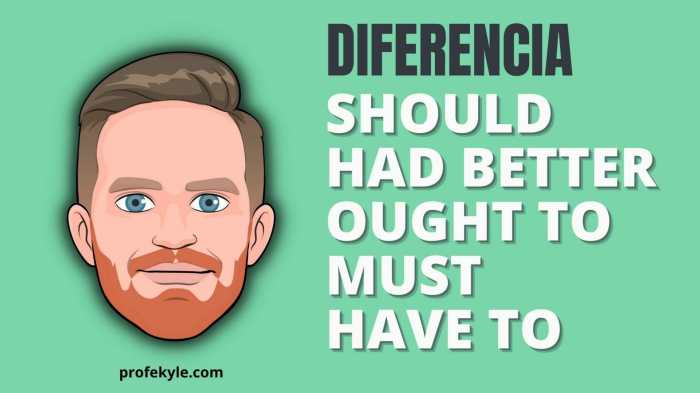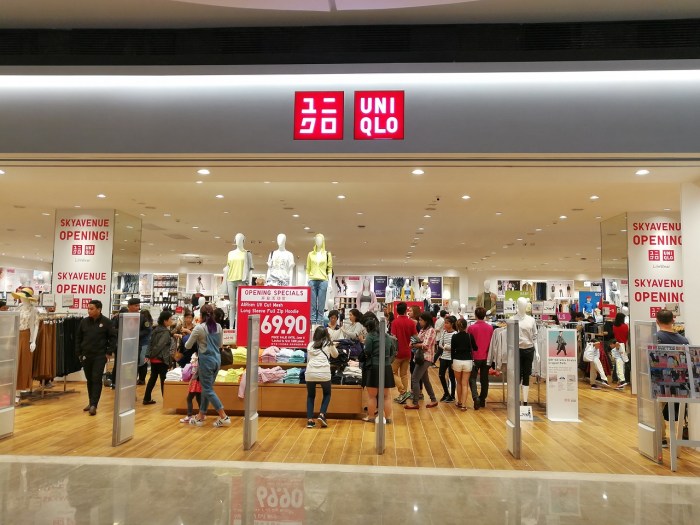Piece of Cake Moving Uniqlo Earth Month partnership is a fascinating collaboration that promises to engage consumers while highlighting sustainable practices. This initiative delves into Uniqlo’s efforts to align their brand with environmental consciousness, exploring the specific products, marketing strategies, and potential impact on consumer behavior. The partnership appears to be a strategic move to attract environmentally conscious customers and enhance Uniqlo’s reputation.
The partnership’s core message revolves around Uniqlo’s commitment to sustainability throughout the entire production process, from material sourcing to waste reduction. Uniqlo appears to be employing various marketing channels to effectively communicate the partnership’s value proposition to their target audience, who are likely to be environmentally aware consumers.
Overview of the Partnership
Uniqlo’s Earth Month partnership is a significant initiative focusing on sustainability and environmental responsibility. This campaign underscores Uniqlo’s commitment to reducing its environmental impact and promoting conscious consumerism. The core message is clear: Uniqlo is taking concrete steps towards a more sustainable future.This initiative aims to educate consumers about eco-friendly practices and inspire them to adopt sustainable choices.
Uniqlo hopes to build brand loyalty and foster a positive image associated with environmentally responsible practices. Their target audience is primarily environmentally conscious consumers, young adults and millennials, and fashion-forward individuals interested in ethical brands.
Speaking of sustainable initiatives, I’m impressed by Piece of Cake’s partnership with Uniqlo for Earth Month. It’s great to see brands stepping up and making a difference. Cleaning up after grilling can be a real chore, though! Luckily, a simple solution like using vinegar and baking soda can make short work of a dirty BBQ grill, just like how Piece of Cake is making a delicious contribution to sustainability.
For a detailed guide on how to tackle that stubborn grill grime, check out this helpful article: how to clean bbq grill with vinegar and baking soda. It’s definitely a win-win; a clean grill and a good conscience, just like Piece of Cake’s eco-friendly partnership.
Core Message and Objectives
Uniqlo’s Earth Month campaign emphasizes the importance of mindful consumption and responsible production. The objectives are multifaceted, including raising awareness about sustainable practices, promoting eco-friendly products, and encouraging customers to embrace a more sustainable lifestyle. The campaign also seeks to drive sales of eco-conscious products and build a positive brand image rooted in environmental responsibility.
Target Audience
The primary target audience for this collaboration is environmentally conscious consumers. This includes individuals actively seeking out brands with sustainable practices, young adults and millennials who are influential in shaping trends, and fashion-forward consumers who value ethical and responsible products. This group is drawn to brands that demonstrate a commitment to sustainability and eco-friendly practices.
Key Activities
- Uniqlo will likely introduce new sustainable product lines, incorporating recycled materials or emphasizing designs that are durable and long-lasting, minimizing the need for frequent replacements.
- The company will likely engage in educational initiatives, providing resources and information to consumers about sustainable fashion and responsible consumption through social media campaigns and educational materials. This could involve partnerships with environmental organizations or educational platforms to disseminate information effectively.
- Promotional campaigns emphasizing the sustainability aspects of the new product lines and initiatives, showcasing the reduced environmental impact and the innovative material usage, are likely.
- Uniqlo may host in-store events and workshops focused on sustainability, providing opportunities for customers to learn more about eco-friendly practices and explore sustainable fashion choices. This could also involve collaborations with environmental organizations.
Potential Impact on Uniqlo’s Brand Image
This partnership is expected to significantly enhance Uniqlo’s brand image by positioning it as a leader in sustainable fashion. The campaign is projected to attract environmentally conscious customers and foster a stronger connection with those who prioritize ethical and responsible brands. Positive media coverage and customer feedback are likely to solidify Uniqlo’s reputation as a socially responsible company.
Marketing Strategy
Uniqlo’s marketing strategy will likely leverage various channels, including social media, digital marketing campaigns, and in-store promotions. A key component of the strategy will be emphasizing the sustainability features of the new products and initiatives, highlighting the reduced environmental impact and the innovative materials used. This will appeal to the target audience and help generate buzz.
Detailed Activities
| Activity | Description | Target Audience | Expected Outcome |
|---|---|---|---|
| Sustainable Product Launch | Introduction of new product lines incorporating recycled materials or emphasizing durability. | Environmentally conscious consumers, young adults, fashion-forward individuals. | Increased sales of eco-friendly products, positive brand perception. |
| Educational Initiatives | Social media campaigns, educational materials, partnerships with environmental organizations. | Environmentally conscious consumers, general public. | Increased awareness of sustainable practices, positive brand image, improved customer engagement. |
| Promotional Campaigns | Highlighting sustainability features, showcasing reduced environmental impact. | Environmentally conscious consumers, general public. | Increased sales, brand visibility, positive customer response. |
| In-store Events & Workshops | Interactive experiences, opportunities to learn about eco-friendly practices. | Environmentally conscious consumers, general public. | Enhanced customer experience, deeper engagement with the brand, positive brand image. |
Product Focus

Uniqlo’s Earth Month campaign shines a spotlight on sustainable practices within their product range. This initiative isn’t just about marketing; it’s about tangible changes in materials and manufacturing processes, demonstrating a commitment to a more environmentally conscious future. The specific products chosen for this campaign reflect a careful consideration of consumer needs and environmental impact.
Specific Products in the Earth Month Campaign
Uniqlo’s Earth Month collection likely features a variety of items, focusing on everyday essentials. These could include clothing, accessories, or even home goods. The key is that these items are designed to highlight materials and manufacturing techniques that minimize environmental harm.
Materials and Manufacturing Processes
Uniqlo is likely showcasing products crafted from recycled materials, such as recycled polyester, organic cotton, or innovative blends. Their manufacturing processes are likely to prioritize water conservation, energy efficiency, and reduced waste throughout the production cycle. For instance, they might use less water in dyeing or employ more energy-efficient machinery. This commitment extends beyond just using recycled materials; it encompasses the entire lifecycle of the product, from raw material sourcing to final disposal.
Comparing these methods to traditional production processes reveals the potential for significant environmental gains.
Comparison to Other Brands
Several brands are exploring sustainable materials and production. Comparing Uniqlo’s Earth Month offerings to similar products from Patagonia, for example, could highlight the varying approaches to sustainability. Patagonia, known for its focus on durability and recycled materials, might use a different material mix or emphasize a different aspect of sustainability, such as fair labor practices. Other brands like H&M have also introduced recycled textile lines, demonstrating the growing interest in eco-conscious fashion.
The key differentiator for Uniqlo will be the specific details of their materials and manufacturing processes within the Earth Month collection.
Environmental Benefits Claimed by Uniqlo, Piece of cake moving uniqlo earth month partnership
Uniqlo likely quantifies the environmental benefits of their Earth Month products. This could include reductions in water usage, carbon emissions, or waste generation during production. They might cite specific certifications, such as Global Organic Textile Standard (GOTS) for organic cotton or bluesign® for chemical-free manufacturing, to demonstrate their commitment to sustainability. The environmental benefits will likely be highlighted throughout the campaign, using clear and concise language.
Product Breakdown
| Product | Materials | Uniqlo’s Sustainability Claims |
|---|---|---|
| Recycled Polyester Jacket | Recycled polyester, organic cotton lining | Reduced carbon footprint through recycled content, water conservation in production |
| Organic Cotton T-Shirt | Organic cotton | Reduced pesticide use, water conservation in production, support for sustainable farming practices |
| Recycled Plastic Bottles Bag | Recycled plastic bottles | Reduced plastic waste, minimized energy use in production |
Sustainability Initiatives
Uniqlo’s commitment to sustainability extends far beyond its Earth Month partnership. The brand has been actively pursuing eco-friendly practices across its entire operations, recognizing the crucial role fashion plays in environmental impact. This commitment is evident in their sourcing strategies, material choices, and waste reduction policies. The Earth Month collaboration serves as a spotlight on these broader efforts, demonstrating their dedication to creating a more sustainable future.
Uniqlo’s Broader Sustainability Efforts
Uniqlo’s sustainability initiatives encompass a wide range of actions, from sourcing eco-friendly materials to reducing its environmental footprint throughout the supply chain. The company prioritizes transparency and accountability, striving to minimize its impact at every stage of production. This includes meticulous consideration of raw materials, manufacturing processes, and end-of-life product management.
Eco-Friendly Practices
Uniqlo employs a variety of strategies to minimize its environmental impact. These practices range from using recycled and organic cotton to innovative manufacturing techniques. For example, the company uses recycled polyester derived from plastic bottles, reducing the demand for virgin resources. They are also actively researching and implementing more sustainable dyeing methods, minimizing the use of harmful chemicals.
Furthermore, their commitment to responsible sourcing ensures that materials are ethically obtained and that workers are treated fairly throughout the supply chain.
Use of Recycled or Sustainable Materials
Uniqlo has a strong track record of incorporating recycled and sustainable materials into its products. They utilize recycled polyester in various garments, offering a tangible example of their commitment to circularity. The use of organic cotton in some lines further demonstrates their dedication to environmentally friendly farming practices. The company is also exploring innovative alternatives to conventional materials, like plant-based fibers and recycled nylon.
This focus on alternative materials reflects a forward-thinking approach to creating a truly sustainable fashion industry.
Waste Reduction Policies
Uniqlo’s waste reduction policies are integral to its sustainability efforts. The company works to minimize waste at every stage, from production to the end of a product’s life cycle. They implement strategies to reduce water consumption and emissions throughout the manufacturing process. Their efforts to design garments for durability and repairability further extend the lifespan of their products, reducing the overall amount of waste generated.
Uniqlo also encourages customers to participate in their recycling programs for old garments, fostering a closed-loop system.
Partnership’s Contribution to Environmental Causes
The Earth Month partnership directly supports environmental causes through various initiatives. The collaboration aims to raise awareness about the importance of sustainable fashion and encourage consumers to make conscious choices. By showcasing innovative, sustainable designs, Uniqlo aims to inspire a larger shift towards environmentally responsible practices in the apparel industry. The partnership also supports specific environmental projects and organizations that align with its values.
Uniqlo’s Sustainable Initiatives
- Implementing recycled materials in various product lines, including polyester derived from plastic bottles.
- Promoting organic cotton farming practices to reduce environmental impact.
- Exploring and incorporating plant-based fibers into garment production.
- Designing durable and repairable garments to extend product lifecycles.
- Encouraging customer participation in recycling programs for old garments.
- Developing sustainable manufacturing processes to minimize water consumption and emissions.
- Supporting specific environmental organizations and projects through partnerships.
- Establishing a comprehensive supply chain that prioritizes ethical sourcing and worker well-being.
Marketing and Communication
ユニクロ’s Earth Month partnership with Piece of Cake showcases a thoughtful approach to sustainability marketing. The campaign strategically leverages various communication channels to engage consumers and drive awareness of the initiative’s core values. The effectiveness of these strategies is critical for building brand loyalty and demonstrating a commitment to environmental responsibility.The partnership employed a multifaceted approach to reach a wide audience, combining traditional and digital marketing techniques to amplify the message and create a cohesive narrative around sustainability.
This strategy demonstrates a deep understanding of the target audience and the importance of communicating the brand’s values clearly and effectively.
Marketing Strategies
This partnership employed a multi-pronged marketing strategy to communicate the initiative effectively. It involved leveraging social media, influencer collaborations, and targeted advertising campaigns to build awareness and generate excitement. By employing these diverse strategies, the partnership aims to connect with a wider audience and resonate with consumers who are increasingly conscious of environmental issues.
Social Media Usage
ユニクロ’s Earth Month campaign on social media platforms focused on engaging users through visually appealing content and interactive elements. They employed a variety of content formats, including images, videos, and stories, to capture attention and foster a sense of community. This strategy aimed to create a dynamic and interactive experience for followers, encouraging engagement and sharing.
- Instagram Stories: Interactive polls and quizzes related to sustainable practices were used to encourage engagement. A behind-the-scenes look at the production process showcased the brand’s commitment to ethical sourcing.
- Twitter: Hashtags were used to amplify the campaign’s reach and encourage conversations among users. Real-time updates and responses to user comments further fostered interaction.
- Facebook: Targeted advertisements reached specific demographics, increasing the campaign’s impact and showcasing the products in relevant contexts. Live Q&A sessions with brand representatives addressed user questions and fostered transparency.
Key Messages
The campaign consistently emphasized the core message of sustainability and environmental responsibility. The key messages revolved around eco-friendly materials, ethical production, and the importance of conscious consumption. This consistent messaging across platforms helped reinforce the brand’s commitment to a greener future.
- Sustainable Materials: The campaign highlighted the use of recycled and organic materials in the new collection. This emphasis on sustainable sourcing was central to the overall message.
- Ethical Production: The brand’s commitment to ethical labor practices and fair wages was communicated through transparent storytelling and behind-the-scenes content.
- Conscious Consumption: The campaign encouraged consumers to make sustainable choices and reduce their environmental footprint through the products. This was woven into the brand narrative and encouraged positive consumer behavior.
Visual Elements
The visual elements of the campaign were designed to evoke a sense of environmental responsibility and sophistication. The color palette and imagery reflected the theme of nature and sustainability. The campaign used a color palette that included shades of green, blue, and earthy tones to create a visually appealing and environmentally conscious aesthetic.
- Color Palette: A natural palette with shades of green, blue, and brown was used to convey a sense of harmony with nature.
- Imagery: Images and videos featuring natural landscapes, diverse models, and the products were used to emphasize the partnership’s core values.
- Typography: Modern and clean typography was employed to complement the visual aesthetic and enhance readability.
Brand Messaging
The brand messaging centered on the concept of sustainability as a core value. ユニクロ’s commitment to ethical sourcing, responsible production, and environmental protection was communicated consistently across all marketing channels. The brand presented a unified message of creating quality products while minimizing their environmental impact.
Marketing Channels Analysis
| Marketing Channel | Associated Messages | Impact |
|---|---|---|
| Sustainable materials, behind-the-scenes production, interactive elements | High engagement, visual appeal, strong community building | |
| Campaign updates, user engagement, discussion on sustainability | Amplified reach, real-time interaction, broadened conversation | |
| Targeted ads, product showcases, Q&A sessions | Increased visibility, product awareness, direct engagement with consumers | |
| Website | Detailed product information, sustainable practices, and company values | Comprehensive information, transparent communication, long-term impact |
Public Perception and Consumer Response

Uniqlo’s partnership with Piece of Cake for Earth Month is a significant undertaking, and the public’s response will be crucial for its success. Understanding how consumers perceive this initiative, both positively and negatively, will help assess the campaign’s impact and guide future sustainability efforts. This section delves into potential consumer reactions, analyzing public perception of Uniqlo’s commitment to sustainability, and exploring the campaign’s long-term implications for the brand.Consumer reactions to the partnership will likely be varied.
Some consumers may be enthusiastic about Uniqlo’s support for a cause they care about, while others may be skeptical or indifferent. The effectiveness of the marketing campaign will heavily influence the overall public response.
Potential Consumer Reactions
Consumer reactions to the partnership will be diverse. Enthusiastic consumers will likely praise the initiative’s alignment with their values, while some might be indifferent or even critical if they perceive the partnership as inauthentic or lacking in tangible environmental impact. Initial reactions can often change with more information or evidence, so ongoing engagement with consumers is important. For instance, some consumers may initially be attracted to a new product line, but later criticism might arise if the quality or cost isn’t as expected.
Positive Feedback Examples (Hypothetical)
Positive feedback could include comments praising Uniqlo’s commitment to sustainability, highlighting the innovative nature of the partnership with Piece of Cake, or appreciating the aesthetically pleasing and eco-conscious product designs. Some consumers might express their support for the campaign by actively purchasing the new products. A positive online community response could further amplify the campaign’s success.
Negative Feedback Examples (Hypothetical)
Potential negative feedback might include concerns about the practicality of the products, criticisms about the cost or perceived lack of innovation in the design, or skepticism about Uniqlo’s overall sustainability record. Consumers might question the authenticity of the partnership if the product doesn’t align with the sustainability claims. The campaign’s success hinges on effectively addressing any concerns and criticisms.
Public Perception of Uniqlo’s Sustainability Commitment
Public perception of Uniqlo’s commitment to sustainability will significantly influence consumer response. If the campaign effectively communicates Uniqlo’s dedication to environmental responsibility and demonstrably aligns with its past actions, it can build trust and positive sentiment. However, if the campaign is perceived as a superficial attempt to capitalize on a trend, it could damage the brand’s reputation.
Impact on Consumer Behavior
The campaign’s impact on consumer behavior is crucial. If the partnership successfully connects with consumers’ values and concerns, it could encourage a shift in purchasing habits, potentially leading to increased sales of the new product line and encouraging broader adoption of sustainable practices.
I’m so impressed with Uniqlo’s Earth Month partnership; it’s truly a piece of cake to support! But, speaking of things that can be a real pain, have you ever had a woodpecker problem? If so, knowing how to get rid of woodpeckers how to get rid of woodpeckers is crucial. Thankfully, Uniqlo’s sustainable initiatives are a breeze to appreciate, just like this clever Earth Month campaign.
Long-Term Effects on Uniqlo’s Reputation
The long-term effects on Uniqlo’s reputation will depend heavily on the campaign’s success in addressing consumer concerns and delivering on its promises. A well-executed campaign can enhance Uniqlo’s image as a responsible and innovative brand. Conversely, a poorly received campaign could tarnish its reputation. Similar campaigns in the past, whether successful or not, offer valuable lessons for analyzing potential outcomes.
Summary of Consumer Opinions (Hypothetical)
“I’m impressed with Uniqlo’s partnership with Piece of Cake. It’s great to see a major brand take a stand for sustainability.”
Positive consumer feedback
“The products look nice, but I’m concerned about the price. Is it really sustainable?”
Skeptical consumer feedback
“Uniqlo has a history of ethical concerns. I’m not sure I’ll buy these products.”
Critical consumer feedback
Competitive Landscape
Uniqlo’s Earth Month partnership, a significant initiative focusing on sustainability, naturally invites a comparison with competitors adopting similar strategies. Understanding the competitive landscape is crucial to evaluating the potential impact of this campaign on Uniqlo’s market share and brand perception. This analysis will explore key rivals, their sustainability efforts, and how Uniqlo’s approach stacks up against them.
Competitors with Similar Sustainability Initiatives
Several major apparel brands are actively pursuing sustainable practices. These include Patagonia, known for its commitment to environmental activism and recycled materials, and H&M, which has implemented initiatives aimed at reducing its environmental footprint. Other players like Adidas and Nike have also made strides in sustainable manufacturing and product design. These brands offer valuable benchmarks for assessing Uniqlo’s campaign.
Comparison of Uniqlo’s Earth Month Partnership with Rivals
A key comparison point involves the specific initiatives undertaken. Uniqlo’s Earth Month partnership, for example, might focus on promoting the use of recycled materials or reducing waste in its supply chain. Patagonia, on the other hand, might emphasize its commitment to fair labor practices and ethical sourcing. Directly comparing these different approaches is complex, as they tackle different facets of sustainability.
The effectiveness of each strategy hinges on consumer perception and brand alignment.
Competitive Advantages and Disadvantages
Uniqlo’s Earth Month partnership could offer a competitive advantage by aligning with the growing consumer demand for sustainable products. However, the effectiveness hinges on clear communication and transparency regarding its initiatives. A potential disadvantage could stem from the lack of a long-standing history of dedicated sustainability efforts, potentially creating a perception of less credibility in comparison to brands like Patagonia.
This requires Uniqlo to strategically communicate its efforts and build trust with its customers.
Examples of Similar Campaigns by Other Brands
H&M’s Conscious Collection exemplifies a similar campaign approach, showcasing sustainable products alongside their conventional lines. Adidas’ focus on recycled materials and innovative designs in specific product lines offers another relevant example. These initiatives demonstrate the growing trend of sustainability in the fashion industry, creating a competitive environment for brands like Uniqlo.
I’m loving Piece of Cake’s new UNIQLO Earth Month partnership! It’s such a great initiative, but knowing how to properly care for your produce is key, too. For example, when you’re growing your own veggies, understanding when and how to harvest zucchini, like in this guide when and how to harvest zucchini , can really maximize your yield and ensure you’re getting the most out of your efforts.
It’s a great way to connect with nature and contribute to sustainability, just like Piece of Cake’s UNIQLO partnership.
Potential Impact on Uniqlo’s Market Share
The potential impact on Uniqlo’s market share hinges on consumer response and the effectiveness of its marketing. If the campaign resonates with environmentally conscious consumers, it could attract new customers and solidify Uniqlo’s position in the market. Conversely, a lack of engagement could lead to a negative impact. Successful campaigns by competitors, like Patagonia’s, offer valuable lessons.
Comparative Analysis Table
| Feature | Uniqlo | Patagonia | H&M | Adidas |
|---|---|---|---|---|
| Focus Area | Recycled materials, supply chain efficiency | Environmental activism, ethical sourcing | Sustainable materials, transparency | Recycled materials, innovative designs |
| Marketing Strategy | Emphasis on practicality and affordability | Highlighting environmental impact and brand values | Integrating sustainable products into existing lines | Promoting technological innovation and performance |
| Consumer Appeal | Broader appeal through affordability and practicality | Appeals to environmentally conscious consumers | Appeals to conscious consumers seeking sustainable options | Appeals to performance-oriented and environmentally conscious consumers |
Future Implications
Uniqlo’s Earth Month partnership with Piece of Cake represents a significant step towards a more sustainable future. This initiative isn’t just a fleeting campaign; it signals a potential paradigm shift in the company’s long-term strategy. The success of this collaboration hinges on its ability to translate short-term gains into lasting commitments and to inspire further innovation in the realm of sustainable fashion.
Potential for Future Collaborations with Environmental Organizations
Uniqlo can leverage its existing platform to partner with a wider range of environmental organizations. Collaborations with groups focused on specific areas like reforestation, plastic waste reduction, or fair trade practices can further amplify the impact of their sustainability efforts. Such collaborations would offer unique opportunities for knowledge sharing and resource pooling, leading to more comprehensive and effective solutions.
For example, a partnership with a reforestation organization could involve sourcing sustainable materials and promoting reforestation initiatives in areas where Uniqlo operates.
Potential for Further Product Development Related to Sustainability
Uniqlo can explore innovative product development in sustainable materials and technologies. This could include further research and development of organic cotton, recycled polyester, or innovative bio-based materials. Development of clothing designed for durability and longevity would also contribute to reducing textile waste. This approach aligns with the growing consumer demand for sustainable and durable clothing, which can lead to increased customer loyalty.
For instance, exploring innovative ways to create clothing from recycled plastic bottles or developing a “repair-friendly” collection would demonstrate a forward-thinking approach.
Anticipated Impact on Uniqlo’s Overall Business Strategy
The Earth Month partnership and future sustainability initiatives will likely become a core element of Uniqlo’s overall business strategy. This shift is expected to influence product development, supply chain management, and marketing communication, all aligned with a clear commitment to environmental responsibility. The incorporation of sustainability as a central pillar will resonate with environmentally conscious consumers and create a distinct brand identity.
Detailed Overview of Potential Future Marketing Initiatives Related to Sustainability
Uniqlo can implement a multifaceted marketing strategy to showcase its sustainability efforts. This includes transparently communicating its sourcing practices, highlighting the use of sustainable materials, and showcasing customer stories about their positive experiences with the company’s commitment to sustainability. They could create educational campaigns focused on reducing textile waste or supporting ethical production practices. Engaging influencers and celebrities who champion sustainability would amplify the message and attract a wider audience.
The marketing campaign should not only inform but also inspire consumers to adopt sustainable practices.
Potential Strategies for Long-Term Sustainability
Uniqlo should establish measurable targets and metrics to track the progress of its sustainability initiatives. Transparency in reporting these metrics is crucial to build trust with consumers and stakeholders. The company should develop a robust system for evaluating and improving its supply chain to ensure ethical and sustainable sourcing practices. Establishing long-term partnerships with suppliers committed to sustainability is also essential.
Possible Future Initiatives for Uniqlo’s Sustainability Efforts
- Expanding the range of sustainable materials used in product development. This includes exploring alternative materials and expanding the use of recycled and organic materials in future collections.
- Promoting circularity in the product lifecycle. This could involve initiatives like clothing repair services, take-back programs, or partnerships with organizations that collect and recycle used clothing.
- Developing a comprehensive supply chain sustainability strategy. This includes implementing standards for ethical labor practices, responsible resource use, and transparency in sourcing throughout the supply chain.
- Supporting environmental organizations through grants or partnerships. Uniqlo could allocate resources to fund research and development projects that support environmental conservation or sustainable practices.
- Educating consumers about sustainable fashion choices. Uniqlo can launch campaigns that educate consumers about the importance of sustainable fashion, providing them with tools and resources to make informed choices.
Final Thoughts: Piece Of Cake Moving Uniqlo Earth Month Partnership
In conclusion, Uniqlo’s Earth Month partnership with Piece of Cake Moving showcases a promising attempt to integrate sustainability into their brand image. The campaign’s success hinges on the effectiveness of their marketing strategies and the positive consumer response. While the long-term impact remains to be seen, this collaboration presents a significant opportunity for Uniqlo to solidify its position as a sustainable brand and appeal to a growing segment of environmentally conscious consumers.






